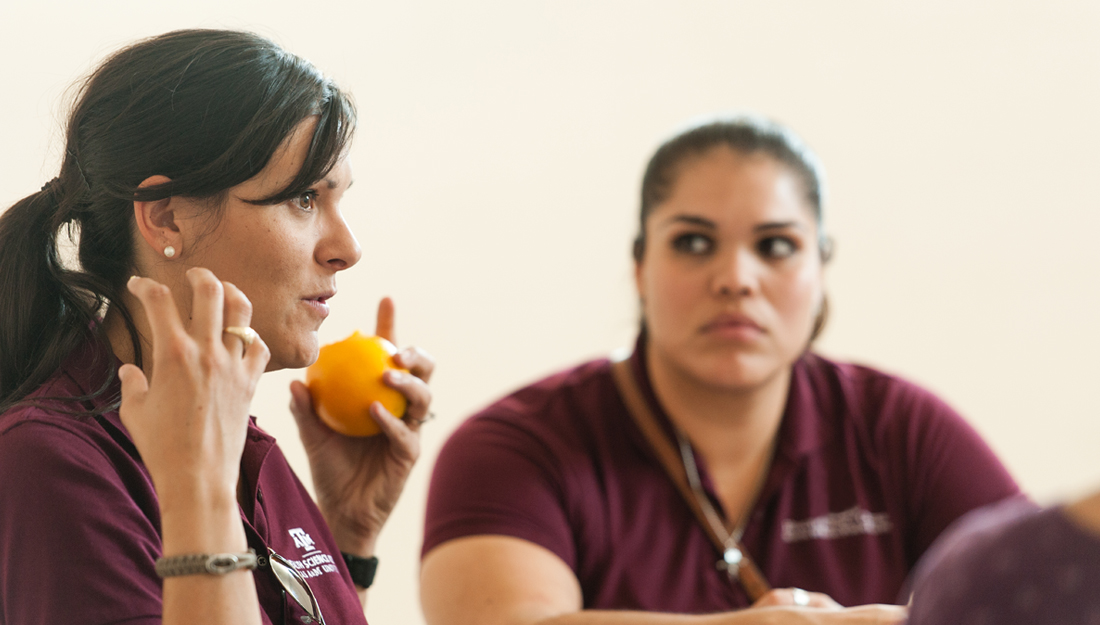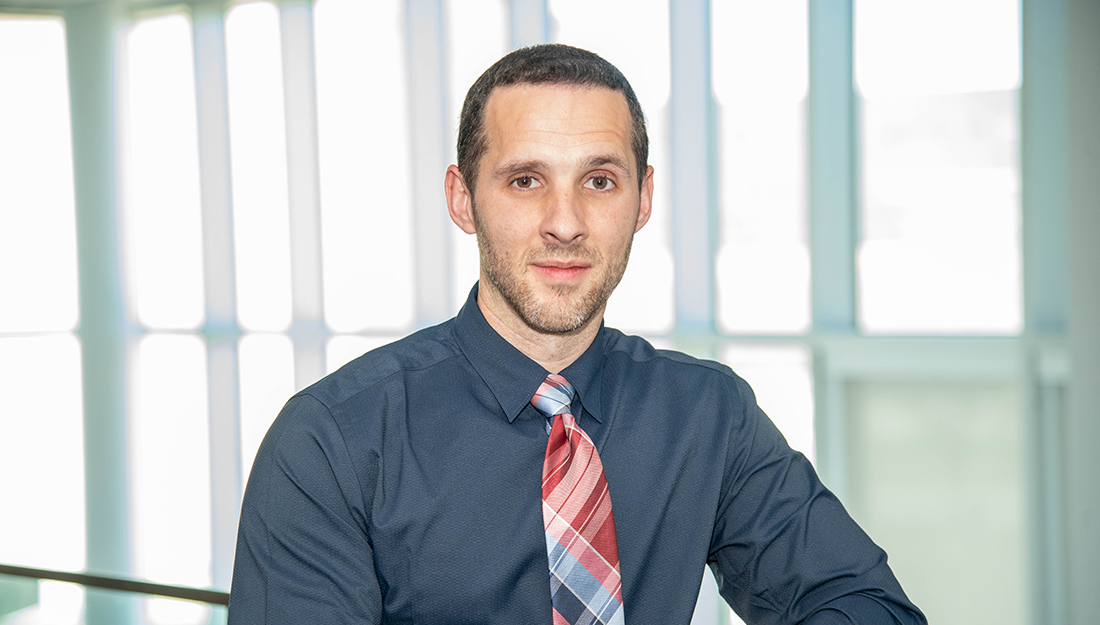New nutrition empowerment program equips promotoras to better serve the colonias

Community Health Workers (CHW’s) or Promotoras de Salud, have served as trusted, lay community health advisors in the colonias along the Texas-Mexico border in Hildalgo County for years. Recent research published in the Journal of Hunger and Environmental Nutrition shows that a new education program, the Promotora Nutrition Empowerment Initiative (PNEI), has better equipped promotoras to be active agents of positive change in one of the most disadvantaged and hard-to-reach populations in the U.S.
Seven promotoras within the Program for Research & Outreach-Engagement on Nutrition & Health Disparities Solutions and Construyendo Communidades Fronterizas Mas Sanas (Building Healthier Border Communities) initiative at the Texas A&M Health Science Center School of Public Health requested specialized and comprehensive nutrition-related education to better equip them to meet the needs of the communities they serve.
Residents of the colonias are primarily of Mexican-origin and live in substandard housing conditions with limited access to safe water and sewer sources. They experience numerous nutrition-related health disparities and encounter many barriers to adopting and maintaining healthy behaviors.
A research team from the Texas A&M School of Public Health lead by Doctoral Candidate Maj. Brenda Bustillos, M.S., R.D., L.D., and Joseph Sharkey, Ph.D., M.P.H., R.D., founding director of the Program for Research & Outreach-Engagement on Nutrition & Health Disparities Solutions, conducted a number of formal and informal community and promotora needs assessments to develop a framework for the curriculum. An extensive review of literature and existing curricula tailored primarily to Mexican-origin communities and promotora populations was conducted. Further, considerations of conditions that influence dietary behaviors and are prevalent in the colonias were taken into account, such as limited financial and household resources, food insecurity and lack of transportation.
Using this research as well as adult learning and social cognitive theory, the PNEI was developed consisting of eight educational workshops (four hours per month) comprised of in-depth nutrition education with hands-on activities. Each lesson was evaluated, modified and delivered to the promotoras by a registered and licensed dietitian in face-to-face, group process workshops. Each workshop was presented with a “from curriculum to community” approach, with applicable knowledge that could easily be reiterated by the promotoras to community residents.
Education on food preparation using limited resources, shopping and budgeting for healthful food items, keeping foods safe in the home and food label reading were taught, in addition to such topics as government resources for the financially unstable and ways to prevent and treat chronic diseases such as diabetes and heart disease. Careful consideration was given to language and syntax, culture and other environmental conditions of the community.
“The term promotora-researcher was identified by the group to emphasize that in addition to providing outreach and health information, they are actively engaged in conducting research and bridging the relationship between participants and academic institutions within their communities,” Bustillos said. “Using a community-based research model to develop the PNEI was key to improved nutrition knowledge and has empowered the promotora-researchers to engage with confidence in education and outreach in their communities.”
In order to measure the success of the initiative, the research team implemented two multiple choice tests over the content of the workshops both before and after each of them occurred, as well as a 60-minute focus group that allowed for promotoras to provide feedback on the program’s effectiveness. Post-test scores showed a significant improvement in knowledge, and almost all of the promotoras responded they felt much more confident in their abilities to teach members of their community after attending the workshops. Also, during focus group discussions the promotoras reported they found the program educational, empowering and culturally well adapted for the community.
“When we are in the community, because of the title we have, people think we know it all,” one promotora said. “We never knew how to answer their questions until you listened to our concerns and requests for education and taught us.”
The next steps of the program are developing similar initiatives to further address root causes of need, expanding the roles of promotoras to include development, implementation, evaluation and dissemination of this workshop model to other areas in need of community-based education.
Media contact: media@tamu.edu


